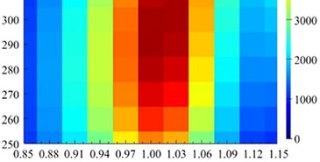Dec 23 2014
The Universities of Bath, Bristol, Sheffield and Strathclyde and their industrial partners have been given funding to develop the UK into a future hub for the manufacture of advanced semiconductor materials.

Bristol has been awarded £450,000 to develop advanced manufacturing techniques for nano-engineered semiconductors, particularly Gallium Nitride. The research will be led by Professor Martin Cryan in the Department of Electrical and Electronic Engineering and Dr Andrei Sarua in the School of Physics.
The award is part of a £2.65 million Engineering Physical Sciences Research Council (EPSRC) five-year grant within the area of Manufacturing Advanced Functional Materials - “Manufacturing nano-GaN”.
Gallium Nitride (GaN) underpins the emerging global solid state lighting and power electronics industries. The impact of these materials was recently recognised by the award of the 2014 Nobel Prize for Physics to Akasaki, Amano and Nakamura, pioneers in the field.
Creating three-dimensional structures at the nanoscale provides a route to improving the quality of these materials and in turn the performance of these devices. Ultimately this will increase the energy efficiency in these and other emerging applications, such as water purification, where ultra-violet LEDs are used to prevent viruses reproducing.
Martin Cryan, Professor of Applied Electromagnetics and Photonics, said: “This grant will enable nanoscale manufacturing, such as nanoimprint lithography, currently being pursued within universities to be scaled up to 4” and 6” wafers in partnership with leading UK companies such as Plessey Semiconductors.”
The funding will also enable the design and scale-up of a new generation of medical diagnostic sensors based on nanophotonics, exploiting the unique optical and piezoelectric properties of GaN.
Professor Cryan’s group will work with world leading numerical modelling company Lumerical Solutions Inc to use design centering techniques, which use detailed knowledge of manufacturing tolerances to create very high yield processes. They will use this approach to design highly efficient LEDs and a range of nanoscale sensors which exploit resonant enhancement based on photonic crystals, nanobeams and nanopillars.